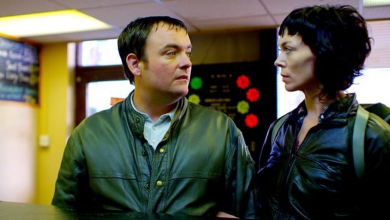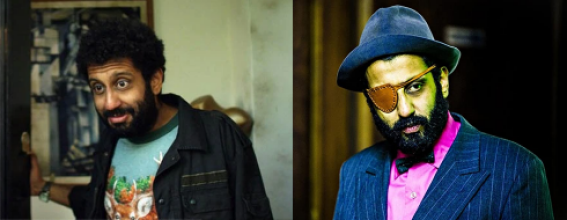

A lot of our class lecture time so far has been focused (whether on purpose or not) around if an individual can actually contribute to solving issues that impact everyone like climate change, pollution, etc. etc. and somewhat less so on what there actually is to do about those issues. The other day, however, I watched an 8-hour-long YouTube video about a British conspiracy show called Utopia, and some of the central themes to that show have stuck in my brain.

The central premise isn’t exceptionally important to my discussion of it here, but what you need to know is that in this world there is a massive shadow organization called The Network. They have a lot of very shady goals, kill a lot of people, and do whatever they can to stay hidden, but we find out that their central goal is to ”fix” looming environmental crises such as climate change, pollution, and food shortages by releasing a modified flu virus named Janus that sterilizes 95% of people and by extension will cut the population down to a fraction of what it was within about a century. There’s a lot of really interesting commentary throughout the show from Network higher-ups around this deeply pessimistic outlook on the environmental crisis, insisting that humanity won’t be able to work together to find a solution in time so genocide/eugenics is the “only option.” One of the main characters, Milner, is so persuasive with how she presents these arguments that she even manages to convert one of the main characters, who was literally tortured for information by Network goons, over to her side.
A lot of the messages many of the characters stake their lives on revolve around this sense of “everyone for themselves”-ness. Two members of the main group, Jessica and Pietre, both have a mantra of, “There are no sides, just people who help you and people who don't,” reflecting the theme that people are unpredictable and will do whatever they have to in order suit their own ability to survive and thrive, rather than accept personal sacrifices for the betterment of others—like what needs to happen in order to tackle some of the massive looming issues in the environment right now. Everyone serves their own self-interest, no matter how deluded, like how the Network is so convinced that eugenics is the only way to save the world that the murder of whoever stands in the way of their plan and the forced sterilization of billions are just stepping stones to a better world. It’s especially haunting with how massively influential the Network is; they’re capable of finding and silencing anyone who has too much information almost instantly through their vast network of informants and enforcers.


Left: Pietre and Jessica. Right: Wilson before and after.
To tie this back into class, I feel like these heavy topics in Utopia are a sort of reminder of where to draw the line—when pessimism turns from grimly realistic to actively harmful. While it is true to some extent that the single individual can virtually never hope to offset the impact of a giant corporation, there is change that can be made both within and around our existing social structures. UpCycle made this point excellently with the ant metaphor: we don’t have to live like ants, as that would be unnecessarily detrimental and regressive, but we can stand to learn some things from them. Utopia, however, shows what happens when people with a few too many connections decide that maybe we do need to live a little more like ants in a more literal way.
I don’t think by any means that the Network has any validity here. The best option will never be genocide. I think that should go without saying, but in today’s age full of constant waves of bad news after bad news, maybe it’s less of a given than before. Maybe it’s more feasible for someone, eaten alive by the anxiety about our impending doom, to be radicalized into thinking some murder is okay if it means the human race as a whole won’t continue to spiral into downfall from our own hubris. I just hope those people can get therapy before trying to make evil shadow Networks.
 ←
←